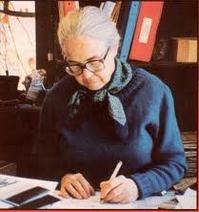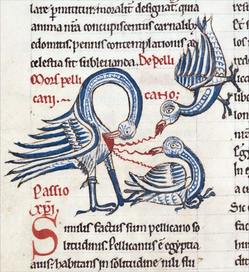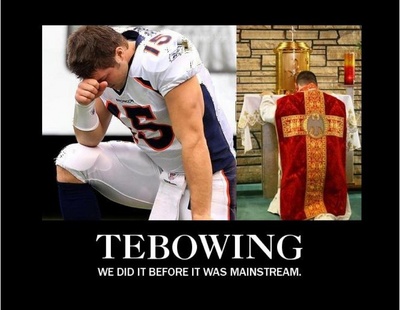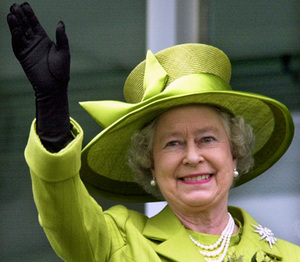 Today, England’s Queen Elizabeth II, 86, begins the 60th anniversary of taking the English Throne.
Today, England’s Queen Elizabeth II, 86, begins the 60th anniversary of taking the English Throne.
Tag: culture
Work, culture and education according to Benedict
Last week Benedict XVI spoke to people who belong to various movements in the Church that make contributions to work, culture and education. Why is my posting this important? Because I believe what the Pope has to say is crucial in following his lead in the life I lead, and I believe it is helpful for others who desire to live similarly. I am confronted –in a good way– with questions about the value of work, culture and education and the place of the Church in these sectors. As Father Giussani told us, the Church is not here to fix our problems but to offer us a lens by which we can judge the reality in front of us so that we can fix a problem. Pay close attention to what Benedict has to say:
”Work is not only an instrument of individual profit, but it is a moment in which to express ones’ own skills with a spirit of service in a professional activity, be it factory work, agricultural, scientific or otherwise,”
“Culture, voluntary service and work constitute the indivisible trinomial of the Catholic laity’s daily life, which makes belonging to Christ and the Church more real, in the private as much as in the public spheres of society.”
“The lay faithful put themselves in the game when they touch one or more of these contexts and, in the cultural service, by showing solidarity with those in need and on the job, they strive to promote human dignity.”
Continue reading Work, culture and education according to Benedict
Are you part of the problem?
Adé Béthune
A past post on Adé can be read here and her obit is posted here.
Charles Colson, RIP at 80
 The famed Watergate figure who turned his soul over to Christ has died at the age of 80. He met the Lord at 3:12 pm earlier today.
The famed Watergate figure who turned his soul over to Christ has died at the age of 80. He met the Lord at 3:12 pm earlier today.
Portsmouth Institute announces the 2012 conference: “Modern Science, Ancient Faith”
The Portsmouth Institute is set to begin its third year of work from June 22-24, 2012, with the theme of “Modern Science, Ancient Faith.”
Arm yourself for the culture war, Peter Kreeft, advocates at the Siena Forum for Faith and Culture
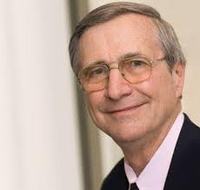 A week ago (February 18, 2012) Dr. Peter J. Kreeft, professor of Philosophy of Boston College and popular Catholic apologist delivered two lectures concerning the conflicts of culture, conscience, freedom and faith in which we find ourselves at these days.
A week ago (February 18, 2012) Dr. Peter J. Kreeft, professor of Philosophy of Boston College and popular Catholic apologist delivered two lectures concerning the conflicts of culture, conscience, freedom and faith in which we find ourselves at these days.
Pelicanus
PELICANUS is the word for a certain breed of bird
Who truly is a crane;
Egypt is his domain.
There are two kinds there-of;
Near to the Nile they live;
One of them dwells in the flood, the fishes are his food;
The other lives in the isles on lizards, crocodiles,
Serpents and stinking creatures, and beasts of evil nature.
In Greek his title was Onocrotalos, which is longum rostrum,
Said in the Latin tongue instead,
Or long break in our own.
Of this bird it is known that when he comes to his young,
They being grown and strong,
And does them kindly things,
And covers them with his wings.
The little birds begin fiercely to peck at him;
They tear at him and try to blind their father’s eye.
He falls upon them then and stays them with great pain,
Then goes away for a spell, leaving them where they fell.
On the third day he returns, and thereupon he mourns,
Feeling so strong a woe to see the small birds so
That he strikes his breast with his beak until the blood shall leak.
And when the coursing blood spatters his lifeless brood,
Such virtue does it have
That once again they live.
Know that this pelican signifies Mary’s Son:
The little birds are men restored to life again by that dear blood
Shed for us by our God.
Now learn one morning more, revealed by holy lore:
Know why the small birds try to peck thie father’s eye,
Who turns on them in wrath and puts them all to death.
Men who deny the light would blind God’s blazing sight,
But on such people all His punishment will fall.
This is the meaning I find:
Now bear it well in mind.
— from an Anglo-Norman Bestiary of 1120 by Philippe de Thaun;
this version from “Things of this World” by Richard Wilbur

